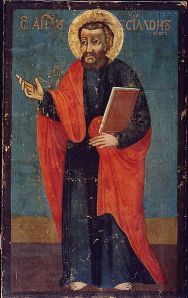In my last post I mentioned that there were at least four political groups of homeland Jews in Jesus’s day: Pharisees, Essenes, Zealots, and Sadducees. I think modern Christians could learn a bit about their own politics from each of these groups. At the risk of oversimplifying, here is a thumbnail sketch of each group:
- Zealots believed in the overthrow of the Roman Empire. They would not tolerate pagan idols and practices in their land. God would bring about the Kingdom with their help.
- Essenes believed in withdrawing from the corrupt Temple system and the Empire. They would live holy lives in an alternative world until God brought about the Kingdom without their help.
- Pharisees believed in radical personal holiness. They believed in internalizing their religious law, and that God would give punishment and reward in the afterlife.
- Sadducees believed in the establishment. They made peace with Rome and focused on religious ritual. They believed divine punishment and reward happen in this life.
Rather than thinking of the world in terms of liberal and conservative, I like thinking about how Christians of various kinds fall into similar groupings. For example, Zealots are those social activists who are passionately committed to political action. Essenes react negatively to Zealots, warning them against putting their faith in politics.
There were also polarized parties in the early church. While we often love to talk about the unity of Acts 2, when believers were “all of one mind,” I think Luke’s depiction of the church is a bit more rosy than other evidence indicates. There were disagreements between Greek and Hebrew Jewish Christians. They fought over gender equality. They fought over food regulations. They fought over circumcision. They fought over how literally to understand resurrection. They fought over who was in charge. Of course, the most sanctimonious ones claimed they simply followed Christ.
They struggled to figure out how to deal with slavery, classism, and their relationship to a pagan government. Sound familiar? Of course, Paul’s words to the Corinthians give disputing groups some guidance on how to treat each other. Basically, if you can’t be loving, at least be civil! And while he acknowledges that some members may be jerks (what he called “body parts you do not display in public“), they may also play an essential function.
I believe our contemporary polarization is not some aberration from the ideal early church, but entirely consistent with the action of the Holy Spirit within a group of highly committed political and religious people. In any given conflict, there will be winners and losers, as there were from the debates before, and the terms of debate will shift, and we’ll be arguing about something else fifty years hence. But if we don’t look at the history of these disputes, and only focus on the rosy picture of church unity in Acts, we will never really ask, or learn, or care what God is doing, right now, in the midst of this debate. How has God acted before? Where would you have stood in the circumcision debate? In the food-sacrificed-to-idols debate? In the women-in-leadership debate? In the prohibition debate? In the civil rights debate? Are your religious and political attitudes closer to the Pharisees, the Essenes, the Zealots, or the Sadducees? We’re really good at finding prooftexts for our own beliefs in scripture. Can we also find examples of how to talk about those beliefs?

